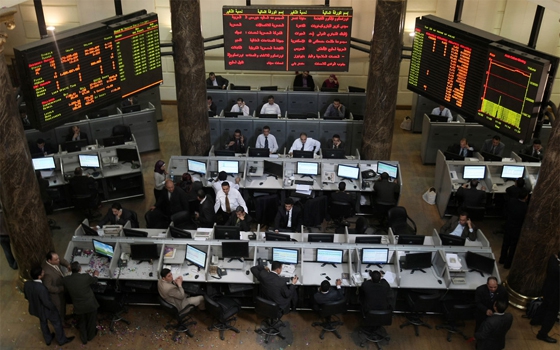In a move that will boost the country’s capital markets, reduce state activity in the market and provide much-needed revenues for the government’s coffers, Egypt is laying the groundwork for the first potential sale of key state-owned enterprises (SOEs) in over a decade.
News of the nation’s plans came in January, when Alaa Youssef, a spokesman for Egypt’s presidency, announced that shares in “successful” state-owned firms would be listed on the Egypt Exchange (EGX).
Egypt’s government and public institutions own a wide range of enterprises, including major engineering firms and three of the country’s largest banks, although over the past two decades the state has begun to reduce its ownership in a number of companies.
The last public sale of an SOE came in 2005, when shares of the state landline monopoly Telecom Egypt and industrial firms Sidi Kerir Petrochemicals and Alexandria Minerals Oils Company were floated on the exchange.
Opening call
Earlier this month, Tarek Amer, governor of the Central Bank of Egypt (CBE), told local media that the CBE plans to carry out an initial public offer of United Bank of Egypt (UBE), a state-owned commercial lender.
The central bank currently holds a 99% stake in UBE, which was created from the merger of three failing banks taken over by the CBE in 2006. According to Amer, the central bank had always intended to divest itself of UBE once structural reforms were initiated.
UBE’s assets stood at more than LE28bn ($3.6bn) as of the end of 2015, acting chairman Farag Abdel Hamid told media in February. The bank has been profitable since 2013 and was expected to record an increase in net income of at least 15% last year, though year-end figures have yet to be released.
Mohammad Omran, chairman of the EGX, praised the government’s decision to sharpen its focus on listing state companies, describing it as “an important step at this time, and one of the best economic trends over the past years”.
However, plans to list remain at an early stage and observers expect some opposition to privatization, which has been viewed as controversial in the past.
Creating capital
The listing of successful state-owned companies could help rally trading on Egypt’s stock exchange, while also reducing the operational burden on the state.
Largely as a result of external pressures, the EGX saw its market capitalisation ease by more than 14% in 2015, before registering another 9% decline in the first month of trading this year to reach LE391.1bn ($49.9bn), according to data from the EGX.
As with many equity markets around the world, the EGX has been affected by a combination of global factors, including concerns over China’s economic path, falling commodity prices and the US Federal Reserve’s decision to raise benchmark interest rates in December.
Egypt has also faced domestic challenges, including lower tourism receipts and ongoing security concerns. Continued depreciation of the Egyptian pound, which lost 8.6% of its quoted value against the US dollar in 2015, has also impacted investment.
Private sector momentum
However, the prospects for the capital markets in 2016 are comparatively positive.
In early February local press reported that Beltone Financial, a major Egyptian financial services company, was preparing IPOs of several companies in the retail and food industries, with combined estimated capital of more than LE10bn ($1.3bn).
Recent merger and acquisition activity has also been promising. Commercial International Bank agreed in mid-February to sell its investment-banking arm, CI Capital, for LE924m ($118m) to Orascom Telecom Media and Technology (OTMT), which is owned by Egyptian tycoon Naguib Sawiris. OTMT plans to merge CI Capital with Beltone Financial, which it acquired in late 2015.
A little more than a week later, investment bank EFG Hermes announced it had acquired a 76.7% stake in Tanmeyah Microfinance from investment holding company Qalaa Holding.
This was followed by the sale of 100% of Halayeb Company for Dairy and Juice Products to France-based Danone, marking the third transaction in the dairy sector in less than 12 months.
Contributing to recovery
Capitalizing on this private sector momentum, whole or partial privatization of SOEs via the EGX could prove to be a key component of a broader recovery strategy for the bourse, reducing volatility and helping state-owned companies access capital for expansion.
Sales of stakes in major state enterprises could also provide welcome funds for Egypt’s leadership.
The government currently faces a budget deficit equivalent to 11-11.5% of GDP for the current fiscal year, which runs through to the end of June 2016, Hany Kadry Dimian, minister of finance, told media in February. The country faces as estimated financing gap of between $25bn and $30bn over the next three years, Dimian added.
Oxford Business Group





































































